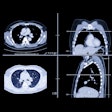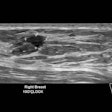
NEW YORK (Reuters Health), Jun 29 - Researchers in the U.K. have developed a method to identify patients with colorectal cancer that have mutations in DNA mismatch-repair genes. However, carriage of such mutations did not affect survival, according to a report in the New England Journal of Medicine for June 29.
Inactivating mutations of various DNA mismatch-repair genes can result in hereditary nonpolyposis colorectal cancer, also known as the Lynch syndrome. The present findings may help identify individuals with this syndrome, without the prohibitive expense of genetic testing, Dr. C. Richard Boland, from Baylor University Medical Center in Dallas, notes in a related editorial.
The U.K. study included 870 unselected colorectal cancer patients, younger than 55 years of age, in the model-generation cohort and 155 patients, younger than 45 years of age, in the validation cohort. The subjects were tested for mutations in three germ-line DNA mismatch-repair genes: MLH1, MSH2, and MSH6.
The mutation rate in the model generation cohort was 4%, senior investigator Dr. Malcolm Dunlop, from the University of Edinburgh, and colleagues note. The carrier frequency in men was double that seen in women: 6% versus 3% (p < 0.04).
The predictive model incorporated clinical variables as well as histopathologic features. Based on factors such as age at diagnosis, sex, tumor location, and family history, the model was 62% sensitive in identifying patients who were carriers of DNA mismatch-repair genes, with a positive predictive value of 80%.
In the validation cohort, the mutation rate was 23%, the report indicates. The model developed by the researchers was better than the Bethesda or Amsterdam criteria for identifying the Lynch syndrome.
As noted, the survival of patients with mutations was not significantly different from that of noncarriers.
"By our best estimate, there should be 3,300 to 6,000 carriers of detectable germ-line mutations in (the DNA mismatch-repair genes) among the patients with colorectal cancer who are identified each year in the U.S., and each carrier has a family," Dr. Boland notes in his editorial. "Our job is to find them."
Last Updated: 2006-06-28 17:00:24 -0400 (Reuters Health)
N Engl J Med 2006;354:2751-2763,2815-2817.
Related Reading
VEGF inhibition by short interfering RNA impairs colon cancer proliferation, April 26, 2006
Copyright © 2006 Reuters Limited. All rights reserved. Republication or redistribution of Reuters content, including by framing or similar means, is expressly prohibited without the prior written consent of Reuters. Reuters shall not be liable for any errors or delays in the content, or for any actions taken in reliance thereon. Reuters and the Reuters sphere logo are registered trademarks and trademarks of the Reuters group of companies around the world.
















